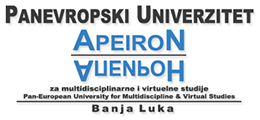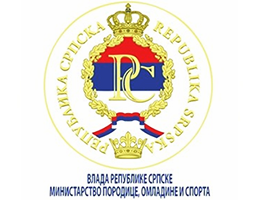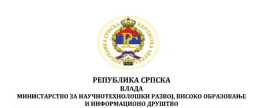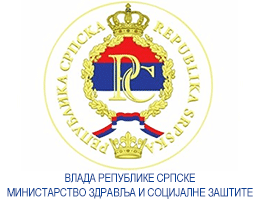Structure and differences in extroversion in Croatian sport coaches
Volume 3, Issue 1 (2013)
Volume 3, Issue 1 (2013)
Structure and differences in extroversion in Croatian sport coaches
Abstract:
The aim of the study was to find the latent structure of extraversion and differences between coaches of different sports in the facets of extraversion, according to the set of independent variables, socio-demographic and related to former athletic career and coaching. A total of 88 coaches of various sports in Croatia were examined, during a seminar for coaches Croatian Olympic Academy. For the measurement of extraversion was used shortened version EPQ questionnaire. Based on selected items of the EPQ questionnaire, two interpretable and reliable facets of extraversion were found, but not for the introversion. Only one statistically significant difference was found in the dimension of sociability, where it was shown that the female coaches are more sociable than men. In the dimension of impulsivity, it was shown that more impulsive are the coaches who won medals at the national championships during their own sport career, as well as those who have terminated a carrier by decision of their sport club and those who terminate career voluntarily. Former members of the national team are more impulsive than those who were not, while the male coaches are more impulsive than the female coaches.
Keywords:
extroversion, facets, impulsivity, sociability
Full Text:
References:
- Barrick, M.R., Mount, K.M. (2005). Yes, Personality Matters: Moving on to More Important Matters. Human Performance, 18 (4), 359–372.
- Barrick, M.R., Mount, M.K. i Judge, T.A. (2001). Personality and performance at the begining of the new millenium: What do we know and where do we go next? International Journal of Selection and Assesment, 9, 9-30.
- Costa, P. T., McCrae, R. R. (2005). Revidirani NEO inventar ličnosti (NEO PI-R) i NEO petofaktorski inventar (NEO-FFI): priručnik. Jastrebarsko: Naklada Slap.
- Depue, R.A. i Collins. P.F. (1999). Neurobiology of the structure of personality: Dopamine, facilitation of incentive motivation, and extraversion. Behavioral and Brain Sciences, 22(3), 491-569.
- Eysenck, H. J. (1967). The biological basis of personality. Springfield, IL: Thomas.
- Eysenck, H. J. i Eysenck, S. B. G. (1975). Manual of the Eysenck Personality Questionnaire. London: Hodder and Stoughton.
- Gilbert, W.D., Jackson, C. (2004). In Search of an Effective Coaching Style. American College of Sports Medicine. Posjećeno 25. lipnja 2006 na: http://coaching.usolympicteam.com/coaching/kpub.nsf/v/5Dec04
- Jung, C.G. (1921). Psychological Types: Collected Works, Vol. 6. Princeton, N.J.: Princeton University Press.
- Larsen, R.J., Buss, D.M. (2008). Psihologija ličnosti. Jastrebarsko: Naklada Slap.
- Leary, M.R., Hoyle, R.H. (2009). Handbook of individual differences in social behavior. New York: The Guilford Press.
- Lojk, L. (1979). Eysenckov osebnostni vprašalnik, Priročnik. Ljubljana: Zavod SR Slovenije za produktivnost dela, Center za psihodiagnostična sredstva.
- Milanović D., Jukić I., Čustonja Z., Šimek S. (2006). Kvaliteta rada u sportu, U: Findak V, ur. 15. Ljetna škola Kineziologa RH Rovinj, Zbornik radova, str. 35-47. Zagreb: Kineziološki fakultet.
- Paulhus, D.L., John, O.P. (1998). Egoistic and moralistic bias in self perception: The interplay of self-deceptive styles with basic traits and motives. Journal of Personality, 66, 1025-1060.
- Schaefer, R.T., Lamm, R.P. (1995). Sociology, New York: McGraw Hill.
- Spence, J.T, Deaux, K., Elmreich, R.L. (1985). Sex Roles in Contemporary American Society. U: Lindsey VG, Aronson E, ur. Handbook of Social Psychology 2, New York: Random House.
- Trbuščić, L. (2010). Djelotvornost i zajedništvo unutar ekstraverzije: ukazuju li facete na različite konstrukte? Diplomski rad. Zagreb: Filozofski fakultet Sveučilišta u Zagrebu.
- Watson, D. i Clark, L.A. (1997). Extraversion and its positive emotional core. U: Hogan, R., Johnson, J.A. , Briggs, S.R. (Ur.), Handbook of personality psychology (str. 767-792). San Diego: Academic Press.
- Webber, K.L., Collins, M.D. (2005). Creative Judo Teaching. West Midlands: Kyudan Books.
- Weiner, I. B. (2003). Handbook of psychology: Personality and social psychology (str. 88-94). New Jersey: John Willey & Sons, Inc.






